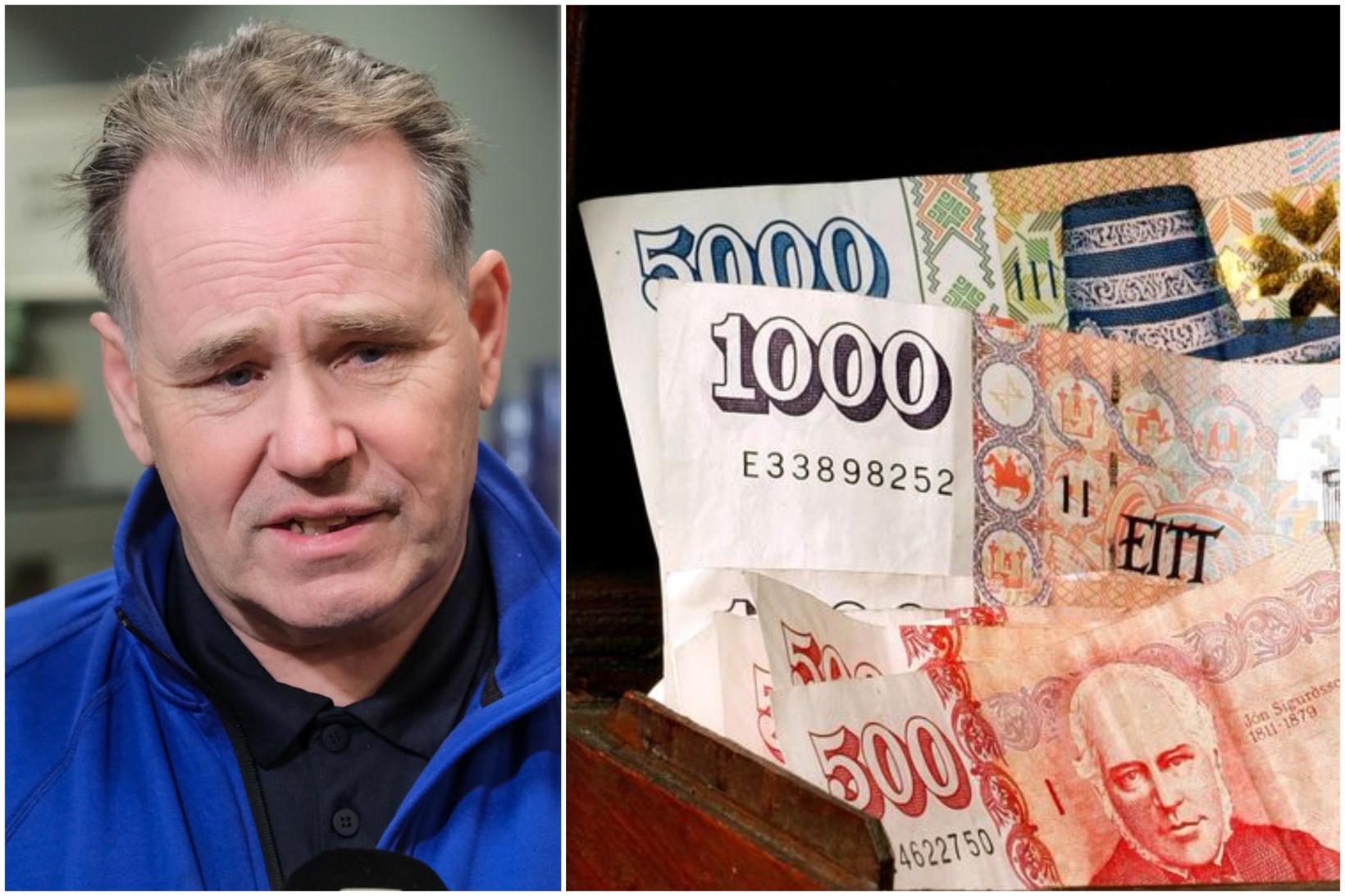"Negative consequences for Icelandic households"
“It is pure poison in Icelandic society. No civilized nation would even consider maintaining a system like the one we have,” says Vilhjálmur Birgisson, referring to indexation. Composite image/mbl.is /Kristinn Magnússon/Golli
No country in the world experiences such significant financial shifts when inflation surges as Iceland does, due to the widespread use of inflation-indexed debt among households and businesses. “This has serious and harmful consequences, and we are not on the right track,” says Vilhjálmur Birgisson, chairman of the Icelandic Federation of General and Special Workers (SGS), in an interview with mbl.is, following the recent spike in inflation.
Widespread impact of inflation
“This is bad news for Icelandic households. It’s bad news for municipalities with large indexed debts. It’s bad for the national treasury. It’s bad for everyone,” says Birgisson.
He stresses the need for collective action to curb price increases and tackle inflation: “We’re virtually the only country where the impact of inflation is this widespread due to the indexation of loans.”
Inflation up 75% compared to last year
Birgisson calls the latest figures “tremendously disappointing.” Inflation rose by 0.84% month-over-month—compared to a 0.48% increase during the same period last year—marking a 75% increase year-on-year.
He points to specific contributors: “Airfares rose by 12.7% this month, and hotel and restaurant prices increased by 2.3%. Tourism and related sectors are clearly driving inflation right now. This is not the right direction, and it’s having a serious negative effect on Icelandic households.”
He gives a stark example: “A 50 million ISK indexed loan will increase by 420,000 ISK in just one month. That’s absolutely outrageous.”
“For tenants paying 250,000 ISK in monthly rent, that means an increase of 2,100 ISK just due to indexation. It’s poison in Icelandic society,” he says.
"A System No Civilized Nation Should Keep"
Asked what could be done besides controlling prices, Birgisson replies that abolishing indexation is the first and most urgent step.
“No civilized nation should tolerate a system like ours. Indexation exists primarily to protect financial institutions. That’s why we’re hit so hard when inflation rises by nearly 1% in a single month.”
Most Icelanders still choose indexed loans, he says, because the monthly payments for non-indexed loans are simply unaffordable—mainly due to high interest rates.
“If indexation didn’t exist, interest rates would be lower. People are being herded into these loans, effectively forced into a system designed to sustain high interest rates and protect financial institutions.”
Everyone must share the responsibility
Birgisson emphasizes that all market actors must take responsibility: “We won’t get inflation under control unless everyone contributes. If we accept it as normal that airfare goes up by almost 13% in a single month, then I don’t know where we stand anymore.”
He concludes: “It’s not enough that Icelandic workers are prepared to commit to modest long-term wage agreements if others aren’t willing to follow suit.”








